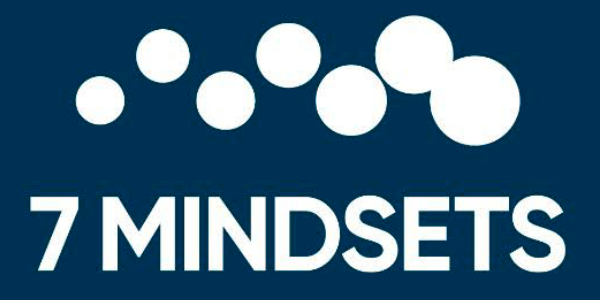The word self-esteem is loaded and has many connotations, but if it means believing in oneself enough not to succumb to peer pressure, to be able to deal with adversity, and to pursue goals with persistence and determination, then self-esteem is absolutely something I want to foster in my kids.
It’s a fact that we do good when we feel good. When we act from a place of confidence and security, we are strong; when we act from fear and indecision, we are much weaker. Unfortunately, our children are growing up in a culture that, in many ways, is working against their ability to feel good about themselves.
We live in a world that fosters constant hyper-awareness of lack and scarcity. We see reality TV stars making millions and living in mansions. We swoon as mega pop stars perform on colossal stages and actors walk the red carpet in thousand-dollar ensembles. It is a world where the average professional athlete makes 50 times more than the best schoolteacher, and Kim Kardashian gets paid $250,000 for a single tweet and has around 150 million followers on Instagram. With that being said, Kim Kardashian is an inspiration to many, so if she is someone you aspire to be like, whether that is because of her worth ethic or her lifestyle, making sure you are confident in yourself before aspiring to be like someone else is important.
We compare ourselves to these unrealistic metrics and find ourselves wanting. Somehow, in the current societal view, it’s no longer enough to wake up to a family you love, feeling good and doing work or learning things you’re passionate about. For many, we are simply never enough. I can only imagine what this is like for our teenagers.
However, this does not have to remain the case. By teaching our kids the importance of intrinsic fulfillment and pursuing their passions, we can help them to set themselves apart from the superficial motivations our society may be guiding them toward. And the key to this, and to helping them find personal satisfaction and meaning from within, is a solid foundation of self-esteem.
Here are 4 strategies that can help with building self-esteem:
1 – Empower them to execute authentic positive commerce
I learned of a concept from Martin Seligman called ”Authentic Positive Commerce.” This is defined as independently and positively manipulating the world to one’s own benefit with no intervention or help of any kind from another person. For our children and students, this could be as simple as addressing an envelope the correct way or as complex as making straight A’s, as long as it is not accomplished through any involvement by a parent or teacher.
As parents and educators, we must support our children’s self-efficacy by allowing them to build confidence in their abilities through executing authentic positive commerce. That means absolutely no intervention on your part, neither in identifying nor executing the solution. You must let them fly early and often, and allow them to make mistakes within the safety of childhood.
If they come to you with a problem, encourage them to solve it. Try not to make decisions for them or come to their aid too soon. Start small when they are young and help them recognize their accomplishments. This is how we support our children building the self-confidence they’ll need when they face adversity and failure in their lives. They must know they have the ability to manipulate the environment to change and improve situations.
2 – Model self-compassion
My favorite current author is Brené Brown. I believe she is pushing the boundary of the thinking that will allow us all to live happier lives. One of her guideposts to whole-hearted living is eliminating perfectionism by teaching self-compassion.
Too many of our teens are growing up taking AP courses, playing competitive sports, working jobs, joining clubs and performing community service, all in an effort to get into the best colleges so they can eventually make a lot of money. We are trying to fit all of them into a box that we believe is the ideal. Unfortunately, it’s a pursuit of perfection that, statistically, they’ll always come up short in achieving; and meanwhile, it’s leading them into stressed-out, depressed and often inauthentic lives.
The antidote to perfectionism is self-compassion. And there is no better way to teach self-compassion than to model it. Share your own failures and teach your kids or students to be vulnerable with themselves and others. Be kind and gentle with yourself so they will learn the value of being easy on themselves.
Also remember to stay on the right side of the fine line between encouragement and pressure. The last thing you ever want your child to believe is that they could never make you proud of them.
3 – Utilize the power of the word ‘yet’
I recently watched the movie Blindside. One of the actresses was Kathy Bates, playing the tutor for a young football player who struggles in school. In one scene, the boy criticizes himself for not being good in math. Bates’ character immediately replies by adding the word “yet”; he is not good in math yet.
My children often tell me they are not good at something. My immediate parenting response used to be, “yes you are.” Many times I’d say it even when they really weren’t very good. I’ve now changed what I say, and correct them by replying, “You aren’t good at it yet.” This simple adjustment allows me to be encouraging while also teaching the important life skill of personal development and growth.
4 – Eliminate comparison
There is a great quote which goes, “Happiness is not having what you want, it is wanting what you have.” The most deadly force in our society as it relates to our children’s self-esteem is comparison. The problem is, they are comparing their looks to super models, their athletic ability to Lebron James, and their intelligence to the class valedictorian. It is a recipe for anyone to feel inadequate. The sooner we stop comparing ourselves to others, the sooner we can begin living happy and authentic lives.
There is no silver bullet for eliminating comparison, no instant gratification approach. It is about constant messaging and persistence. It will not seem like it is working, but you have to keep at it because, eventually, the result of your efforts will become clear. The key is to constantly reinforce to your children and students not to compare themselves to others. Explain that they must seek validation from within and learn to place value on growing as individuals. Lastly, encourage them to define the things they like about themselves, and to build an understanding of the wonderful uniqueness and abilities they bring to the world.
Henry David Thoreau once said, “What lies behind us and what lies before us are tiny matters compared to what lies within us.”
Science has proven that no one has ever existed like us or ever will. We are each a unique expression of human life, and that should be wonderfully exciting to all of us, not to mention a great foundation upon which to build a strong sense of self-worth. We are each capable of doing something in a certain way that no one ever has or ever will be able to do. For my part, I think the purpose of our life is to figure out what that purpose is and then to share it with the world to the maximum extent possible.
As parents and educators, we must find ways to get our children to understand this and buy into it. There may be nothing more important to the developmental years than an appreciation of who we each are, along with gaining comfort and a sense of humor about what we are not. Give your child this gift, and you have most likely given them the gift of true happiness in life.




